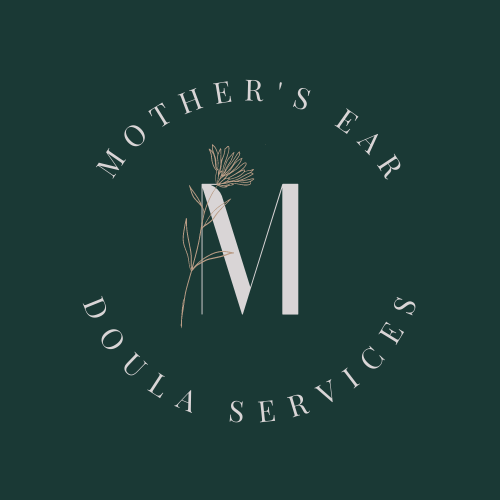The Truth About Birth Bias: How to Keep It From Shaping Your Experience
Is Your Birth Plan Actually Yours? Or Is Bias Writing It for You?
Let’s get real for a second. How many of your birth decisions are actually yours—and how many have been sneakily shaped by societal expectations, family opinions, that one traumatic birth story your coworker overshared, or the 500 Instagram reels that made you question everything?
Birth bias is real, and it’s everywhere. We all have preconceived ideas about birth, from “You need the epidural” to “Your body was made for this.” And while some of these ideas might hold truth, others? They’re about as reliable as a 3 a.m. Google search.
Here’s the thing: Bias isn’t bad. It’s just human. But when it goes unchecked, it can shape your birth experience in ways that don’t align with your actual needs, values, or the facts. And that, my friend, is how you end up making choices that feel more like pressure than empowerment.
So, let’s dig into:
✔️ What birth bias actually is (and how to spot it)
✔️ How it messes with your decision-making (without you even realizing)
✔️ What you can do to make sure your birth experience is truly YOURS
Ready? Let’s bust some myths and take back control.
What Is Birth Bias? (And Why Should You Care?)
Bias is just your brain’s way of filtering information based on past experiences, cultural messages, and personal beliefs. It helps you make sense of the world—but it can also lead you down some sketchy decision-making paths.
And in birth? Bias is everywhere.
Medical Bias → “Hospital birth is the safest option.” (For some people, yes. For others? Not always.)
Cultural Bias → “Good moms go unmedicated.” (Tell that to the moms who thrived with an epidural.)
Personal Bias → “My friend had a C-section, so I probably will too.” (Unless there’s an actual medical reason, not necessarily.)
The problem isn’t that we have biases—it’s that we often mistake them for facts.
How Birth Bias Steers Your Decisions (Without You Noticing)
Here’s how bias sneaks in and shapes your choices before you even realize it:
1. You Think You’re Making an ‘Informed’ Choice… But Are You?
Say you’re planning a home birth. You’ve read all the blogs, listened to the podcasts, and watched every influencer’s water birth video. You feel set.
But have you also explored the risks? The backup plans? The nuances of your specific health history?
Being informed means looking at all sides, not just the ones that confirm what you already believe.
2. You Assume “What’s Normal” Is “What’s Right”
If everyone you know got induced at 39 weeks, it might feel like the thing to do. But is it medically necessary for you? Or just common practice?
3. You Let Authority Figures Shape Your Perspective (Without Questioning Them)
Look, providers are experts. But they’re also human. They have training, hospital policies, and personal biases of their own. And while many are phenomenal, others might push interventions based on convenience, routine, or liability rather than what’s best for you.
Your job? Ask questions. Get second opinions. Know your rights.
How to Spot (& Shut Down) Birth Bias Before It Shapes Your Experience
1. Question Everything (Yes, Even Your Own Beliefs)
Before making a decision, ask yourself:
✔️ Where did I get this idea? (Did I research it, or did Aunt Susan tell me?)
✔️ Is this backed by evidence or just popular opinion?
✔️ Does this actually align with what I want—or what I think I ‘should’ want?
If a belief doesn’t hold up under scrutiny, it’s time to rethink it.
2. Get Your Info From Multiple (Credible) Sources
One TikTok isn’t research. Neither is a single doctor’s opinion.
Try:
📌 Peer-reviewed studies (not just headlines about them)
📌 Doulas, midwives, and providers with diverse perspectives
📌 Balanced discussions that include both pros and cons
3. Surround Yourself With People Who Support Your Choices
Your birth team should empower you—not guilt you. Find people who say, “Let’s explore your options” instead of “This is what you should do.”
4. Make a Birth Plan—But Stay Flexible
Birth is unpredictable. (Shocking, I know.) Instead of a rigid plan, think of it as a set of informed preferences. That way, you stay in control—no matter what happens.
Your Birth, Your Decisions
The truth about birth bias? We all have it. But the key is recognizing it, questioning it, and making sure it doesn’t make decisions for you.
Because at the end of the day, your birth should reflect your values, not someone else’s expectations.
If you’re ready to take control of your birth experience with evidence-based insights, expert guidance, and empowering support, join my email list! You'll get exclusive tips, research-backed insights, and the confidence to navigate your birth choices like a pro.
Sign up [here] and start your journey to an informed, empowered birth. 💪✨
